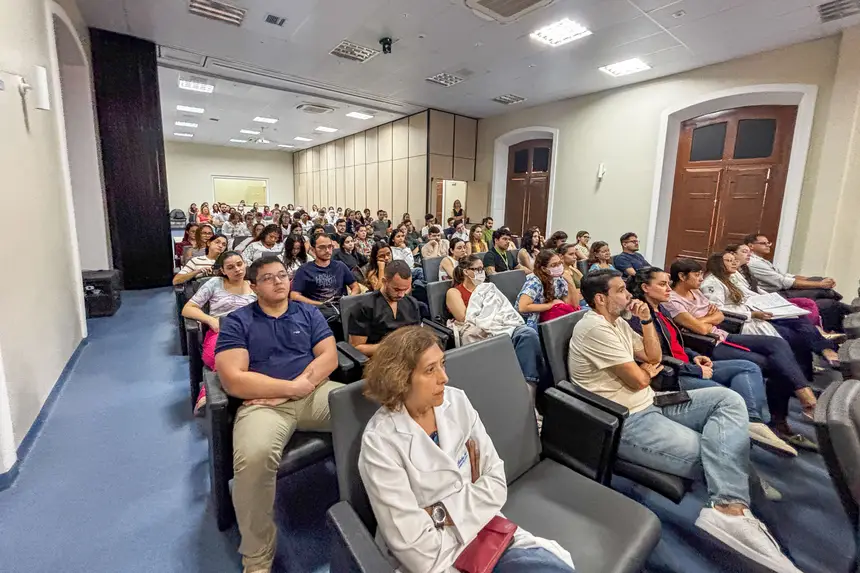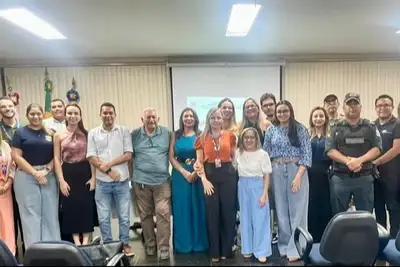Santa Casa do Pará discusses Clinical Bioethics in patient care
Professionals from the institution analyzed the resolution of ethical dilemmas in medical practice and health care, considering moral values in complex situations
With the theme "Clinical Bioethics as a driving tool for holistic care," addressed by physician Josimário Silva, the Santa Casa do Pará Foundation held a lecture on the analysis and resolution of ethical dilemmas in medical practice and health care. The initiative aimed to encourage appropriate and respectful care, considering moral and ethical values in decision-making in complex situations.
According to the speaker, who has training in Clinical Bioethics, specialization in Spain, a master's degree in Medical Law, and a post-doctorate, "it is a topic that, although many people still do not have a more appropriate knowledge about it, we understand that today this will make a big difference in the care relationship."
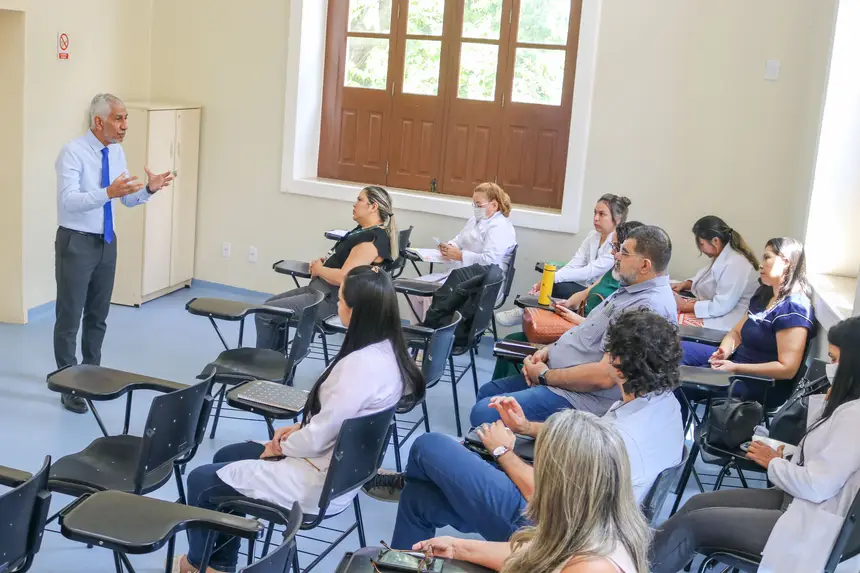
He added that "bringing a topic like Bioethics, and specifically Clinical Bioethics, means saying that we are adding value to a structure that has already been providing care, a professionalism in attending to patients in the best possible way, especially since every clinical intervention, whether medical, nursing, physiotherapy, occupational therapy, psychology, or social assistance, has an ethical component."
Conflict mediation - Josimário Silva emphasized that assistance cannot be centered on treating a specific disease while disregarding the values of the patient and other people involved. "Bioethics is exactly at this interface. It is an assistance area that will mediate conflicts so that this relationship is as harmonious as possible. The importance is precisely to add value to an assistance condition that already exists at Santa Casa, but that this will add to professionals the need to deepen this knowledge, to enhance their clinical interventions to effectively provide quality assistance," emphasized the specialist.
Eliana Botelho, a social worker at the Santa Casa Foundation, participated in the event and highlighted information that aligns with the reality experienced in the hospital, in caring for patients with chronic diseases. "Within our care, we work with patients who undergo transplants, patients with liver diseases. And the information brought in this seminar strengthens and broadens our real understanding of ethics in these cares, the importance of bringing and clarifying, more and more, our capacity for understanding," said the professional.
"He emphasized the family's participation as fundamental for us to define care for patients in terminal situations. I find it very interesting, especially because we have this very concrete reality here. And for us, who are living with these practices and cares on a daily basis, this lecture really brings us knowledge, so that we can, as a team, think and strengthen what has already been built here. We have a palliative care team, and this event brought very interesting information," highlighted the social worker.
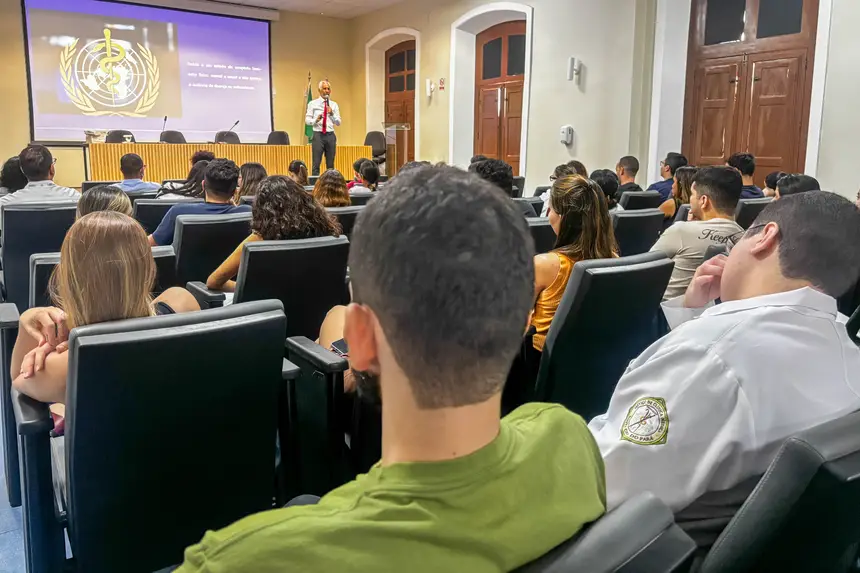
Bioethics as practice - Clinical Bioethics, according to Josimário Silva, refers to the application of ethical principles and values in the practice of medicine and other health areas, seeking to resolve dilemmas and moral conflicts that arise in the daily lives of professionals. In the specialist's assessment, it is a fundamental area for professional practice in health, seeking to guide ethical actions and decisions in an increasingly complex and challenging field.
"We talk about evidence-based medicine. Effectively, it is what drives us, it is scientific evidence. However, to make an assistance decision, this is still not enough for us to promote assistance at its best, in quality. Comprehensive assistance starts from evidence-based medicine, but also based on values. In values-based medicine, you will focus on values that permeate this relationship, such as patient autonomy, the responsibility we have, and many other values, such as health quality, quality of life," added Josimário Silva.
For Aureni Araújo, a physiotherapist at Santa Casa, "the speaker brought these concepts. In palliative care, we have to ensure that this patient has comfort, has their moments prioritized, and especially when we talk about the family relationship, the spiritual relationship of these patients. I, as a physiotherapist, always try to pay attention to the family, to the patient themselves, involving the family in the care and always keeping them informed about the situation that this patient is going through. The patient has the right to choose."
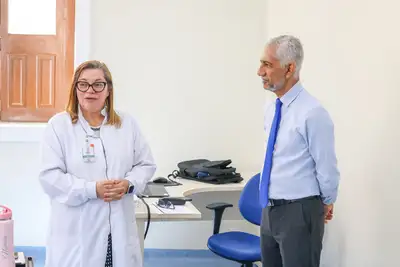
"And all of this has to permeate a decision-making process. You can be a technically competent person, but if we do not include the values and beliefs of the patient, we are automatically very focused on the disease, and not on the patient. This model of values-based medicine places the patient and the family at the center of care, and with that, we build a harmonious relationship, because we cannot always avoid death. But caring is a permanent condition, and this is especially true in palliative care, where these values come to the forefront, as it often involves diseases that are incurable, chronic diseases that can drag on with much suffering. And this is the great objective today, that values-based medicine makes a significant difference in building this professional-patient relationship," emphasized Josimário Silva.
Norma Assunção, Technical Assistance Director of the Santa Casa Foundation, informed that the institution already has a Bioethics committee. "And this committee has been working on these ethical issues, such as legal abortion and palliative care. We have several items of care, transfusion in patients with religious affinity. There are several items that need discussion to outline a conduct, give direction to the team, on how to behave in these situations. This discussion is held within the committee and with the clinical staff," said Norma Assunção, adding that, "for the institution, this meeting on Clinical Bioethics is of utmost importance, to reinforce a path, a line of reasoning, so that the team can base itself to build this foundation for the decision-making of the physician and the assistance team."


